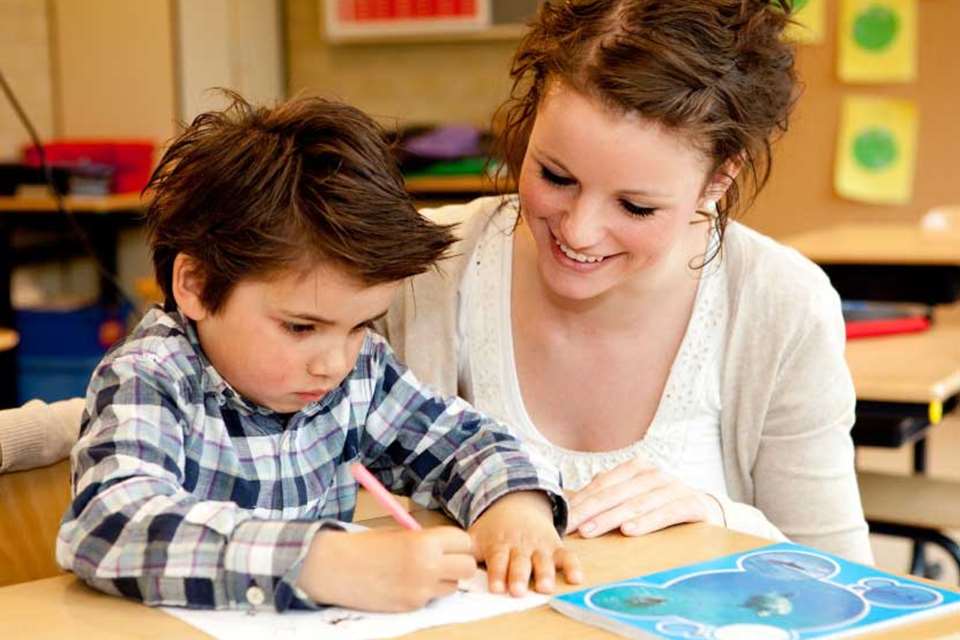Sector urges re-think on plans for 'harmful' baseline assessment
Monday, November 3, 2014
The early years sector is calling on the childcare and education minister to reconsider plans for a baseline assessment for reception pupils.

TACTYC, the association for the professional development of early years educators, has launched a campaign against the Government’s plans to test four-year-olds when they first start school, as they believe the assessments will provide ‘unreliable’ results and be harmful to children’s learning.
The baseline assessment will be introduced in 2016 and replace the EYFS Profile. Teachers will have a choice which assessment they want to use from those approved by the Department for Education.
In a unanimous vote at TACTYC’s annual general meeting over the weekend, members passed a motion to write to childcare and education minister Sam Gyimah, urging him to re-think introducing the assessment.
Under the campaign, which has received the support of Early Education and the Pre-School Learning Alliance, members are also being encouraged to contact their local MPs and teaching unions to raise awareness of the issue.
TACTYC has published a paper detailing its criticisms of the baseline assessment, in which it argues that the assessment will provide unreliable results because young children will not show their true abilities in a test taken out of ‘context of familiar relationships and practical experiences.’
They also claim that the assessments will be based on narrow checklists of basic skills and knowledge and fail to consider the different ways and rates at which children learn and develop.
Along with this, the association says the baseline assessment will be harmful to effective practice and therefore to children’s learning and development, as well as harmful to the home learning environment and parent partnership.
In a subsequent paper, TACTYC outlines recommendations for what it says is a better way forward in assessing children’s outcome. They include:
- Using a summative assessment that is appropriate for young children, is based on formative observational assessment across play and children’s self-initiated activities, over time, carried out by people who know the children well, including parents’ perspectives.
- Using a summative assessment that takes into account the EYFS prime areas and reflects the ways children learn;
- Getting schools to develop data tracking systems based on holistic, principled formative and summative assessment rather than standardised baselines test;
- The development of Ofsted inspection systems that refer to a wider range of evidence of school effectiveness;
- Reviewing the Early Learning Goals, particularly for literacy and mathematics;
![]() TACTYC’s chair Dr Jane Payler said, ‘The baseline assessments will not provide valid evidence towards judgements of school effectiveness, and they risk distorting early years education as practitioners are pressured to ‘teach to the test’, drilling young children in rote literacy and numeracy skills.
TACTYC’s chair Dr Jane Payler said, ‘The baseline assessments will not provide valid evidence towards judgements of school effectiveness, and they risk distorting early years education as practitioners are pressured to ‘teach to the test’, drilling young children in rote literacy and numeracy skills.
‘This distorts the early years curriculum and detracts from the rick explorative, playful and intellectual experiences, which research shows benefit children in the early years.’
Beatrice Merrick, chief executive of Early Education, said, ‘The proposed assessments will take up significant amounts of teacher time at a point where staff should be focusing on helping children settle into schools.
‘Parents may be given the impression their children are somehow failing if they do less well on the tests, which will no doubt include those who are younger, or have English as an additional language, or special educational needs, and a greater proportion of boys. It is not the children who will be failing, but the tests, which will not measure the right things at the right time or in the right way. This is not in the interests of children, parents, teachers or schools.’
Neil Leitch, chief executive of the Pre-School Learning Alliance, said, ‘We remain firmly opposed to the proposed reception baseline assessment. Early years assessments should be observational, encompass all areas of early learning and used to inform planning and support each child’s continuing development – but the baseline assessment fails on all fronts.
‘Not only do the tests ignore key areas of development – such a personal, social and emotional development and physical development – but their primary purpose is to ‘assess school effectiveness’ and rank schools and providers against each other, rather than to ensure that the needs of individual children can be met.
‘This is a prime example of how current education policy is moving in completely the wrong direction. Such a tick-box approach to learning is not appropriate in any part of the education system, and certainly not the early years.’
A DfE spokesperson said, 'Teachers already make assessments of children when they start school. By extending this to all schools, we can make sure teachers are properly recognised for helping every child to progress.
'We are not proposing to use the kind of formal testing in reception that is used with older children. We expect the baseline to be carried out by teaching staff known to the child and for it to be an engaging, stress-free experience for children.
'The content of the new reception baselines, which are still being developed, will reflect the sorts of knowledge and understanding that is typical for children at the start of reception, such as counting and recognising letters, numbers and everyday objects. Our criteria for the assessment also make clear that it can include a wide range of factors to measure a child’s development.'






